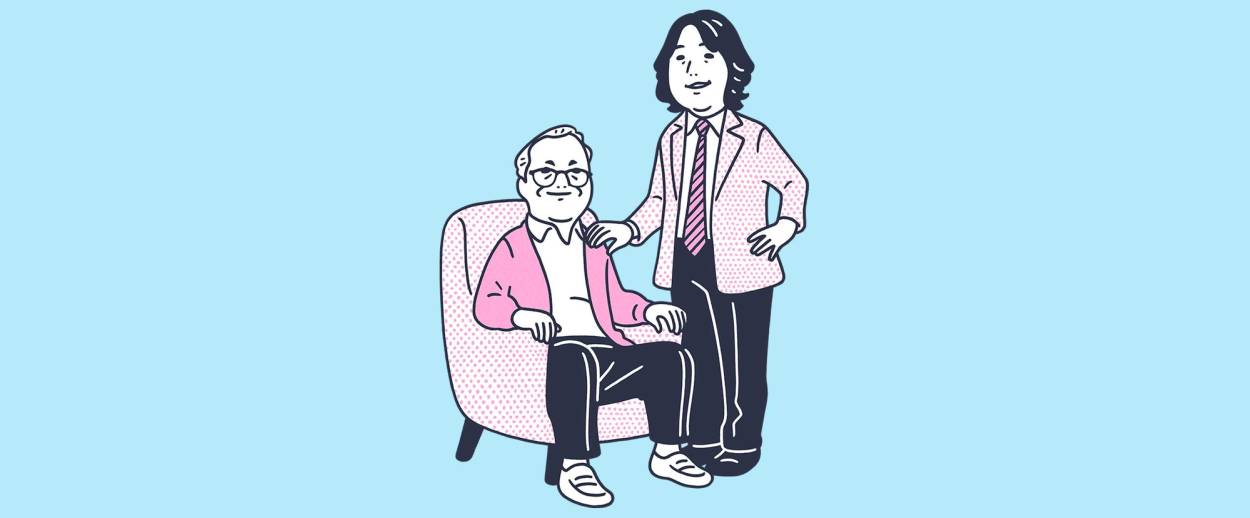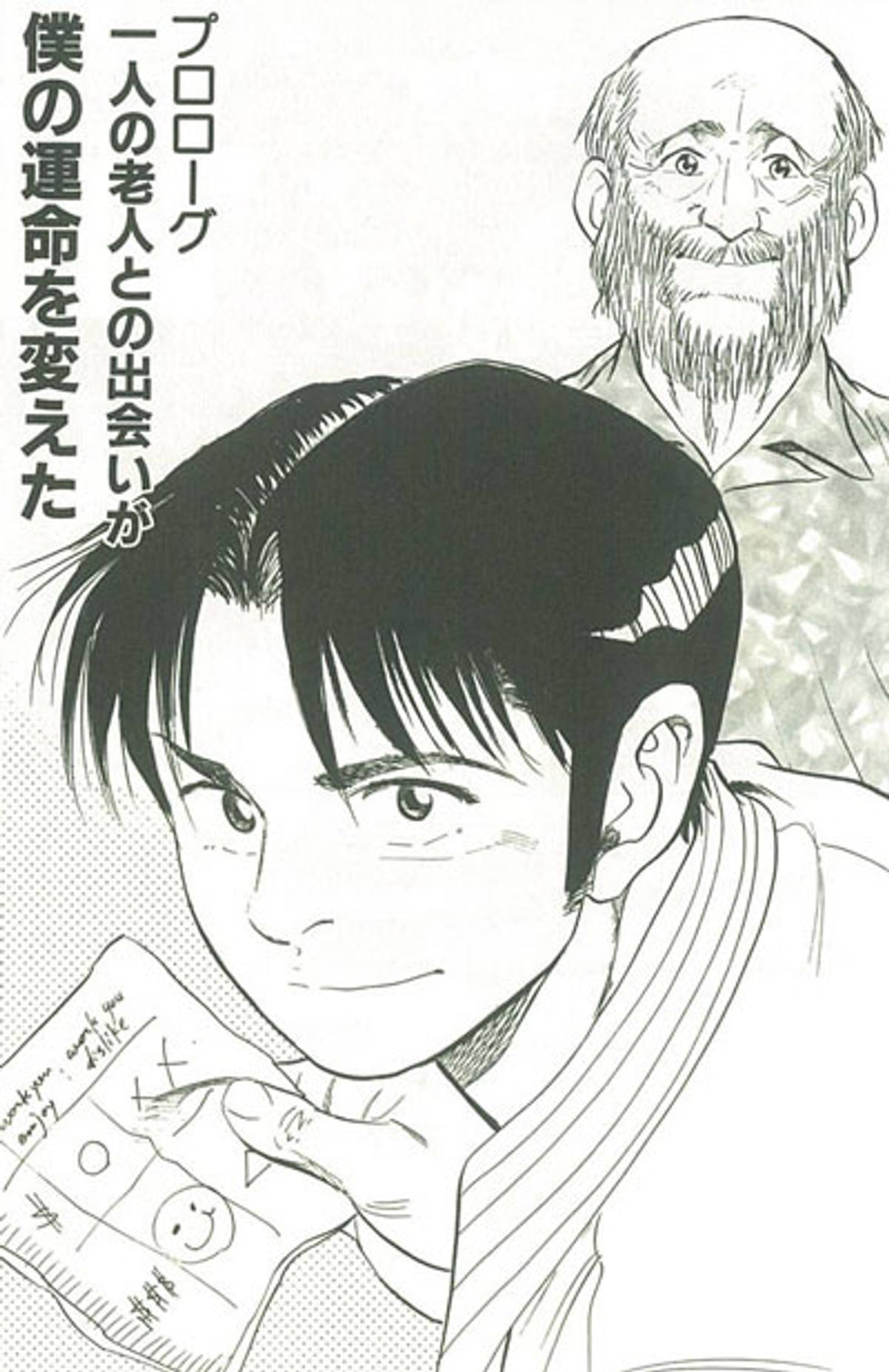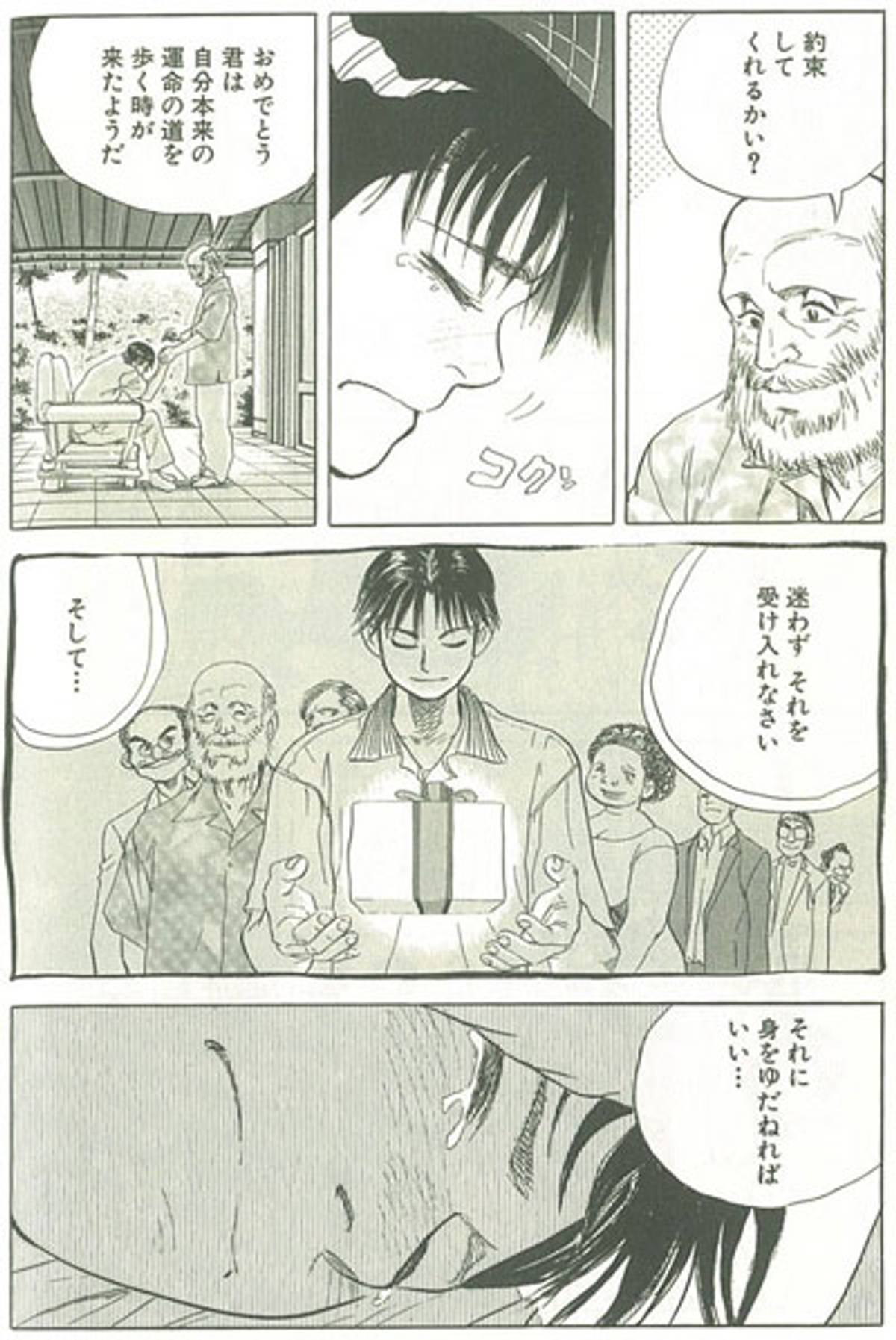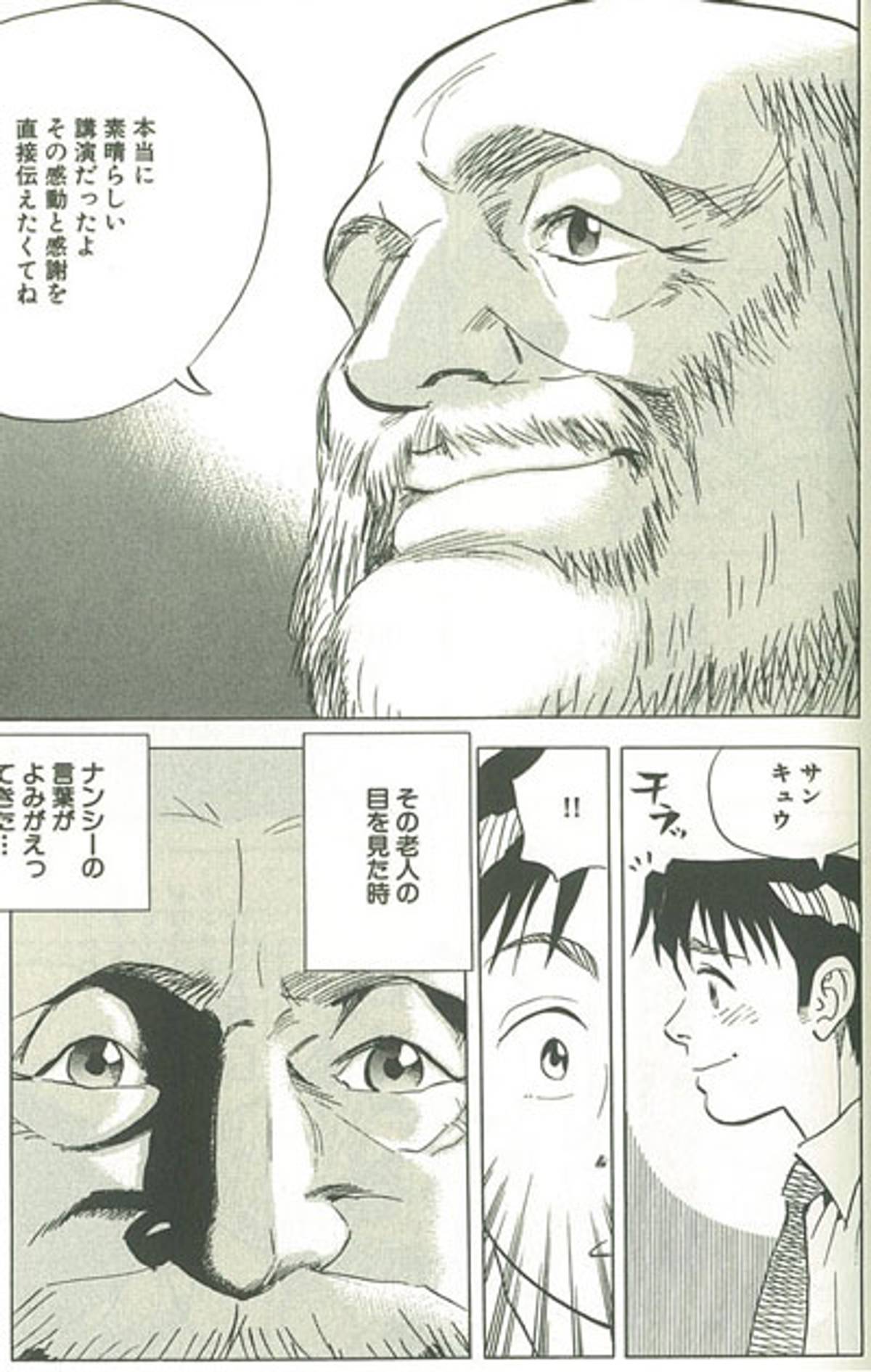Ken Honda’s ‘Lessons of a Jewish Millionaire’
What a Japanese cultural ambassador and self-help guru learned from the retirees of West Palm Beach




When I first met Japanese author Ken Honda at his home in southern Tokyo, I was surprised by how much we have in common. We can both weave Japanese and English in and out of our sentences. We agree that Japanese mothers are similar to Jewish mothers. We both aren’t huge fans of challah (“It’s tasteless bread!” he said.) We both have had Jewish experiences in our college years that have changed the course of our lives—mine was when I came to the United States for college, and had a Jewish roommate.
Honda’s first Jewish experience is more famously known in Japan as his best-selling memoir, The Life Lessons of a Jewish Millionaire, or as it’s known in its English title, The Millionaire’s Philosophy for a Happy Life. With more than a million copies sold, The Life Lessons of a Jewish Millionaire is a memoir about Honda’s tenure as a Japanese cultural ambassador to the Jewish communities of West Palm Beach, Florida. The story is one typical to the self-help genre in Japan: A lost Japanese youth goes to a foreign land, finds himself, and leaves a larger, bigger person with direction and drive. Jewish Millionaire follows this trope closely, as the memoir explores Honda’s transformation from a timid Japanese student to a self-determined activist, fluent in English and determined to fulfill the promises he makes to the Jewish community—a promise to “fix a broken world.”

The emotional core of the story is Honda’s relationship with his Jewish host father, an Austrian Holocaust survivor named “Mr. Geller.” “Mr. Geller,” as a self-made millionaire, gives Honda eccentric tasks to complete: Sell 5,000 laundry clips, sell 1,000 light bulbs, and survive a night on an abandoned island. Through accomplishing these tasks, Honda learns from “Mr. Geller” his philosophies about money management, business, tikkun olam, and human relationships.
While there is currently no Jewish population in Japan of any real size, Honda’s memoir has become a blockbuster hit, inspiring a sold-out lecture series, a manga adaptation and two sequels. While South Korean parents have led their children to the Talmud for a “Jewish education,” Japanese parents—such as my mother—have sent their children manga adaptations of Honda’s book in hopes that they too, will see “Jewish success” as their future.
Although best known for his Jewish Millionaire series, Honda has written and translated 115 books on money management, business, and self improvement and is active as a public speaker teaching people, young and old, how to “gain the emotional intelligence to have a healthy relationship with money.” On his website, he notes that 1 in 20 people across the country has listened to him speak in podcasts or lectures. He has now published a new book written entirely in English—something he has never done before—while rebranding himself the Marie Kondo of personal finance.
“When I was in my 20s, I never thought I could be a writer and be someone who could impact so many people,” Honda told me when I sat down with him in Tokyo. Honda told me he wrote his memoir nearly a decade after his first Jewish experiences in Florida. “Writing this series was my way of giving back to the Jewish community, which played a big role in making me a better human being and a successful entrepreneur when I was in my 20s.” When he turned 29, Honda retired from his career as a consultant. He laughed, “my daughter was born, and I had enough money to [retire] so I did it!”
Honda prides himself on being able to inspire others to chase their dreams. But, ironically enough, Honda told me that it was a bad dream, and the promises he made to the Jewish community of West Palm Beach, that pushed him to start writing.
***
“After I retired, I had money and grew lazy,” Honda remembered as we sat across from each other at a table in his office. “I had promised my Jewish host father, before I left, that I would help bring peace to this world, but I had fallen short. I was so ashamed of myself. And one night, I dreamt that my daughter had grown up and was yelling at me, ‘You are a filthy, stupid guy who doesn’t do anything!’ I woke up and I was so shocked. I had to do something about my life.”
When I first met Honda, it was jarring to hear him speak English with the swagger, tone, and attitude of an American—at times energetic, but most of the time, relaxed, loose, funny, and warm. His assistant, Sarah, told me that I caught Honda at a good time. He had just come back from a retreat in the Yasugatake mountains, and was about to fly to Los Angeles to speak at a Transformational Leadership Conference. He is magnetic, in the way that a comedian is, and he feels deeply about helping young Japanese people learn how to be happy in a society that likes to “pound down the nail that sticks out.”

When he was a cultural ambassador in Boston and Florida, Honda often spoke about his passion for bringing peace to the world, and in looking for his next cause, he thought back to what he imagined world peace would look like. “During the four years I was retired and raising my daughter, I thought a lot about the world I wanted my child to be in,” he said. “I realized that if everyone learned financial independence, learned to do what they loved to do while being able to have the emotional intelligence to have a healthy relationship with money, the world would be a more peaceful place.”
In 2001, Honda set out to write his first series of essays on happiness and money management, a thin booklet called the 8 Steps to Happiness and Prosperity. He poured all of his resources into the book, and resolved to distribute it for free. “My Jewish host father’s philosophy was that it wasn’t just about making money for yourself,” he said. “It’s about using your blessings to share your gifts to the world.” There was initially no marketing plan, so Honda gave his book to a few friends and on the back of the booklet, he asked the reader to recommend it to their friends. At first, the requests were few and sparing, but as word caught on, he said he was shipping out books by the hundreds. Honda estimated that he sent out over 100,000 books in the first year.
His work soon caught the ear of a publisher who offered Honda a book deal—this time, Honda was told to write a memoir about his success and the lessons he learned from his 20s. Initially he rejected the offer, adamantly arguing that he was “done being a writer.” He loved reading, especially books by American transcendentalist Henry David Thoreau.
However, Honda couldn’t stop thinking about his time as a “peace and Japanese cultural ambassador” in the Jewish communities of West Palm Beach. Before coming to the United States, Honda knew “absolutely nothing” about Jewish people and culture, so he remembered distinctly those first experiences: the conversations he had with Holocaust survivors, the Shabbat dinners he experienced with his host family. “It was 1988, so there were a lot of Holocaust survivors who experienced the worst of humanity when they were very young,” he said. “And, many of them, in my interviews with them, inspired me because they taught me so much about celebrating life, forgiveness, and being resilient, which I think is something that the Japanese people share with the Jewish people.”
By a strange coincidence, during his time in Florida, Honda realized that many of the Jews that he had interviewed, including his host father “Mr. Geller,” were alive because they were among the 6,000 recipients of Japanese immigration visas issued by Chiune Sugihara, the Japanese diplomat to Lithuania. Many of the Jews traveled through Siberia and made it to Kobe, Japan—Honda’s hometown—where they stayed for two months, waiting to be rescued.
‘Writing was my way of giving back to the Jewish community, which played a big role in making me a better human being and a successful entrepreneur.’
“So many people came to thank me during my lectures because I am from Kobe,” he remembered. “They told me that I was the first Japanese person they had met since leaving Kobe and coming to the United States. They took me into their homes and were so giving. They wanted to show their gratitude toward the Japanese people.”
Specifically, Honda kept coming back to his relationship with “Mr. Geller,” a successful businessman and realtor who had escaped violent anti-Semitism in Austria. He recalled it was “Mr. Geller,” who had brought him to Florida, after reading an article about Honda’s lectures in Boston, and it was he who first introduced Honda to the concept of tikkun olam. Honda remembered “Mr. Geller’s” last lesson to him, which was to understand that “just like the ocean connected the continents with water, human beings are connected by emotion. Humans have the power to make people unhappy or happy. Our actions ripple past our own lives.”

I asked Honda why the titles are different in Japanese and English—why the Japanese title explicitly notes “Jewish Millionaire,” while the English title omits it—and he explained that the difference is because of the perceptions of Jews in Japan in the early 2000s. Honda told me, before he wrote his book, he was troubled by growing anti-Semitism within Japanese society, “Before my book was published, the Jewish people didn’t have a great image in Japan. There were stereotypes that Jews were greedy, controlling the world, and all sorts of conspiracy stuff. I knew these were false perceptions.”
It is no secret that most East-Asian societies foster perceptions of Jews that are anti-Semitic in nature, but can be philo-Semitic in their effects. Anti-Semitic perceptions of Jews as powerful, greedy, and controlling arrived in Japan with the Protocols of the Elders of Zion—yet have also resulted in the odd form of philo-Semitism that drove my mother to buy me the manga adaptation of Honda’s book so I could “learn from the Jewish people.” A famous example of this tendency happened in 2001, when then-Finance Minister Taro Aso famously said he wanted to make Japan a country where “rich Jews” could live.
Near the end of our interview, Honda talked to me about “en”—a Buddhist concept of karmic connection. “En” is the idea that all the people you interact with in this lifetime are connected to you and will continue to influence you throughout your life. Honda told me that he continues to feel a transcendent “en” with those he met in Florida and his Jewish host father. At the end of his memoir, “Mr. Geller” confessed to Honda in a letter that he felt on some level, a karmic connection to him. “Mr. Geller” wrote that the person who informed him of the escape route from Europe to Siberia to Japan, was a Japanese man by the name of “Ken.” Honda said that although “Mr. Geller” is gone, he continues to learn from the lessons given to him by him and the Jewish community:
One thing that I’ve learned from the Jewish people is resilience and the power of coming back to life. Many of the Holocaust survivors I spoke to had their souls permanently scarred, but despite the despair, they chose to live. I think in our everyday life, we are choosing to do the same. It’s a radical thing to do, to choose to live. In my times of crisis, they are who I think about. I think this is “en” too, the Jewish people have helped me in mysterious ways.
At the end of our interview, Honda laughed and told me that our meeting is part of the karmic connection we share with the Jewish story. At first, I laughed, but I couldn’t help but feel like what he told me was true.
When I was in the seventh grade, my first Jewish experience was Honda’s memoir—and it remained my only experience with the Jewish story until my college roommate introduced me to the wider Jewish community on campus. Since I left Japan, Shabbat dinners have become a weekly respite from the hectic school week, the campus Hillel has become a second home and Israel is a country where I can dance in the Jerusalem marketplace and marvel at the revival of Jewish identity. Honda noted, as we parted ways, that he sees a younger version of himself in me—another young Japanese man who finds himself inspired and changed by the Jewish history. Somehow, someway, he said, our karmic connection—“en”—with the Jewish story has brought us together.
“I have a positive vision of the future,” he said. “I think we are so much more than the sadness and the fear that divides us. I still believe in fixing this broken world, and if the Jewish story has taught me anything, it’s to be resilient in our hopes and dreams.”
***
You can help support Tablet’s unique brand of Jewish journalism. Click here to donate today.
Anthony Berteaux is a Japanese and American writer based in Los Angeles.